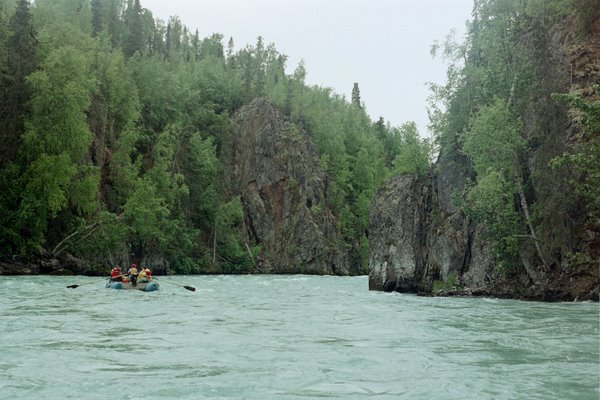First of all, I find it embarrassing that it takes public television to really look at what has happened in Iraq and Afganistan. Even so, the wonderful documentary they put together has it's flaws. I would suggest that anyone who watches it also go to PBS.org and read the extended interviews to get the whole picture because PBS kind of picks and chooses among the quotes to use in the documentary, to generally support certain theses regarding what went wrong in Iraq and who was responsible.
Clearly, L. Paul Bremer, Donald Rumsfeld, Dick Cheney, and arguably the most incompetent nincompoop who ever had a high position in government, Douglas Feith, look pretty bad in this documentary. The lack of a strong President to reel in and focus the strong countervailing personalities of Cheney/Rumsfeld and Powell/Tenet shows Bush to be clearly over his head as an executive. Never having the intellect to ask the right questions, he was easily led, and made one bad decision after another. There are many people who really think Bush is a good person, who means well. That may be, but I'm not convinced. At best you can say he has been incompetent. At worst, you can argue that he is a war criminal. But it surprises me to this day, how few Utahns see it. I think some of it is, a refusal to admit a mistake. People who buy bad cars, often stick by them, even though they empty their wallets paying for repairs. Just as Bush would never admit that he was easily led, Utahns seem incapable of admitting the same.
But for those who have not watched the documentary, I suggest they do. It is still available to be viewed online. It interviews people who were close to the action, who were major players. It dissects both the decision to go to war, as well as the lack of a coherent strategy for reconstruction and dealing with the insurgencies in Iraq. To some extent, it extolls the virtues of the surge, a surge I actually supported. Though I opposed going into Iraq, once there, I have always argued that we need to succeed or the consequences would be dire. Past posts regarding Iraq out me in that regard. My biggest concern has been that the surge may be too little and too late, and without a significant increase in the size of our military, that we are overextending the military we have. I've also argued that we need to reinstitute the draft so that if we are truly committed to this war, the burden should be shared. I have also argued, that we should increase taxes to pay for the additional divisions and to increase the pay and benefits of our men and women who serve in harms way. Going into debt to fight a war just doesn't make sense. If we as citizens of this country truly support this thing, we need to pay for it.
I also have argued for more counter-insurgency training in U.S. troops. Obviously, the Rumsfeldian military view of going in small, mobile and with great air support, though good at overthrowing a government, is insufficient for maintaining or re-establishing order. The PBS documentary provides a much better analysis of military strategy, than seems to have occured in the back rooms of the Bush Administration.
Who looks good in the documentary? General Thomas Keane, retired, Colonel H.R. McMaster (who begs the question of how in the hell did General Sanchez make general and McMaster remains a Colonel) also looks good as he does in Thomas Rick's book "Fiasco". The CIA looks like victims of Cheney's strong-armed tactics to market a case for war in Iraq. Richard Armitage covers his arse rather well in the Frontline documentary and makes a plug for his old boss Colin Powell.
In the end, I find it a remarkable documentary. But what I find even more remarkable, is that none of the major news networks put together anything as informative as this documentary. We as a democratic society are dependent upon our press, and it takes public broadcasting to even let us glimpse what went on in our government at the highest levels in the most important issue of our nation at war. The press in our country has failed us. There is no other conclusion that I can come to. However, a few courageous journalists such as Thomas Ricks, Ron Suskind and others did provide us some valuable information. But we all had to search for it. Hannity and Colmes never really touched the subject, nor did Anderson 360.
My thanks to PBS for their Frontline documentary on Bush's War I and II. I recommend everyone watch it online, and just as important, read the extended interviews of the important players.
Subscribe to:
Post Comments (Atom)



No comments:
Post a Comment